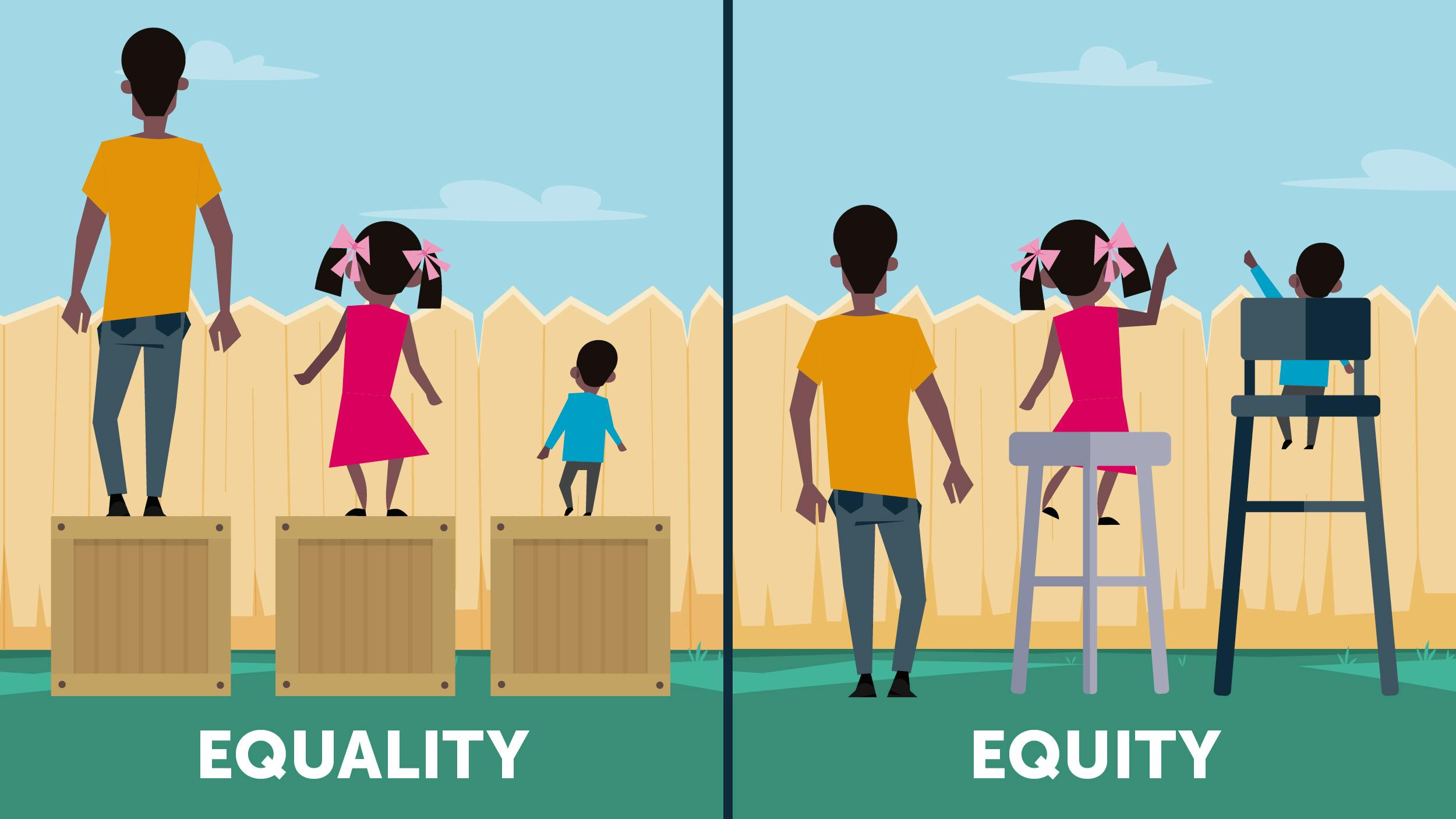AccountancyManagerLast updated: 10 February 2023
Diversity, equity, and inclusion: What is it and why should you care?

Elizabeth Jones25 January 2023
Having a robust, proactive approach to diversity, equity and inclusion (DEI) isn’t just the right thing to do, it makes good business sense.
What do diversity, equity and inclusion really mean?
Diversity, equity, and inclusion are defined as ‘a conceptual framework that promotes the fair treatment and full participation of all people.’ Although the ideas of diversity, equity and inclusion are interconnected and often lumped together, it's important to understand what they mean individually.
Diversity: Who is represented in your business
Diversity means the mixture of different people represented at your business. This includes:
- Gender diversity – the balance of women, men and nonbinary people
- Age diversity – a spread of generations
- Ethnic diversity – different races, nationalities and religious and cultural backgrounds
- Physical ability and neurodiversity – both seen and unseen disabilities
- Sexual orientation – the LGBTQI+ community
Equity: because equality isn’t enough
Equity (in this sense) refers to fair treatment of all people – but it doesn’t mean treating everyone the same. That’s the important distinction between equity and equality. Equality only works if everyone is starting from the same place. Equity acknowledges that imbalances exist and works to balance them.

Inclusion: Genuinely hearing every voice
Inclusion refers to the personal experience of the people working at your practice. It’s about embracing each and every employee – and making sure they have the opportunity to make meaningful contributions.
You can achieve diversity, but unless you’re giving value to each person’s point of view, you’re not achieving inclusion… And you’re not unlocking the power of your diverse workforce.
Inclusion is crucial to employee retention – if people don’t feel valued, heard or empowered they’re more likely to leave. This, of course, applies at every hierarchical level.
Diversity, equity and inclusion are a linked set. It means that you have a range of voices, all of whom are enabled to share their best work and be valued for it. And, when you can support input from everybody, your business benefits.
How does DEI impact business success?
- Innovation and creativity: The most obvious benefit to a diverse workplace is that different minds bring different perspectives and ideas to the table. Diverse backgrounds can also offer different skills, so your company has more strengths in more areas.
“Diversity in the workplace boosts an employer’s brand and presents a company as a more desirable place to work as organisations with diverse workforces are generally more progressive and inclusive of different individual characteristics and perspectives.”
– LinkedIn, The impact of diversity and Inclusion on business performance
- Attract the best talent: Prospective employees take diversity and inclusion into account when whittling down their job offers.
- Higher staff retention and satisfaction: People are much more likely to stick around when they feel like they belong – when they’re being given fair opportunities based on their unique circumstances, and their voices are being heard.
“More diverse companies, we believe, are better able to win top talent and improve their customer orientation, employee satisfaction, and decision making, and all that leads to a virtuous cycle of increasing returns.”
– McKinsey, Why Diversity Matters
- Widen your talent pool: If you look in different places and hire purely based on skills and experience instead of how someone looks, how old they are or where they’re from, you cast your recruitment net wider.
“74% of Millennials believe their organization is more innovative when it has a culture of inclusion.”
- Better understand your clients: When your workforce represents the diversity in your community (across the UK, or even the world), you gain the insights you need to better serve – and attract – a wider and more diverse audience.
Ok, ok, what about the financial impact?
In a perfect world, progressing humanity would always carry more weight than making money. But to support people in employment, you have to consider the financials too. So for business owners, accountants and bookkeepers, the financial question is a valid one.
The answer has been tackled by many reputable names – with results proving that companies with more diverse workforces perform better financially:
- “Companies in the top quartile for racial and ethnic diversity are 35 percent more likely to have financial returns above their respective national industry medians. Companies in the top quartile for gender diversity are 15 percent more likely to have financial returns above their respective national industry medians.” – McKinsey, Why Diversity Matters,
- “A Boston Consulting Group study found that companies with more diverse management teams have 19% higher revenues due to innovation.” – The World Economic Forum, The business case for diversity in the workplace is now overwhelming
“I am not suggesting you should do it for the money but if it positively impacts the culture of the organisation, productivity and the bottom line surely it is a no brainer?”
– Forbes, 8 reasons why diversity and inclusion are essential to business success
We’re on our own diversity, equity and inclusion journey
At Bright, we’re committed to not only promoting diversity, equity and inclusion – but building a business that’s led by these pillars. We’ll be sharing insights and updates over the coming months.